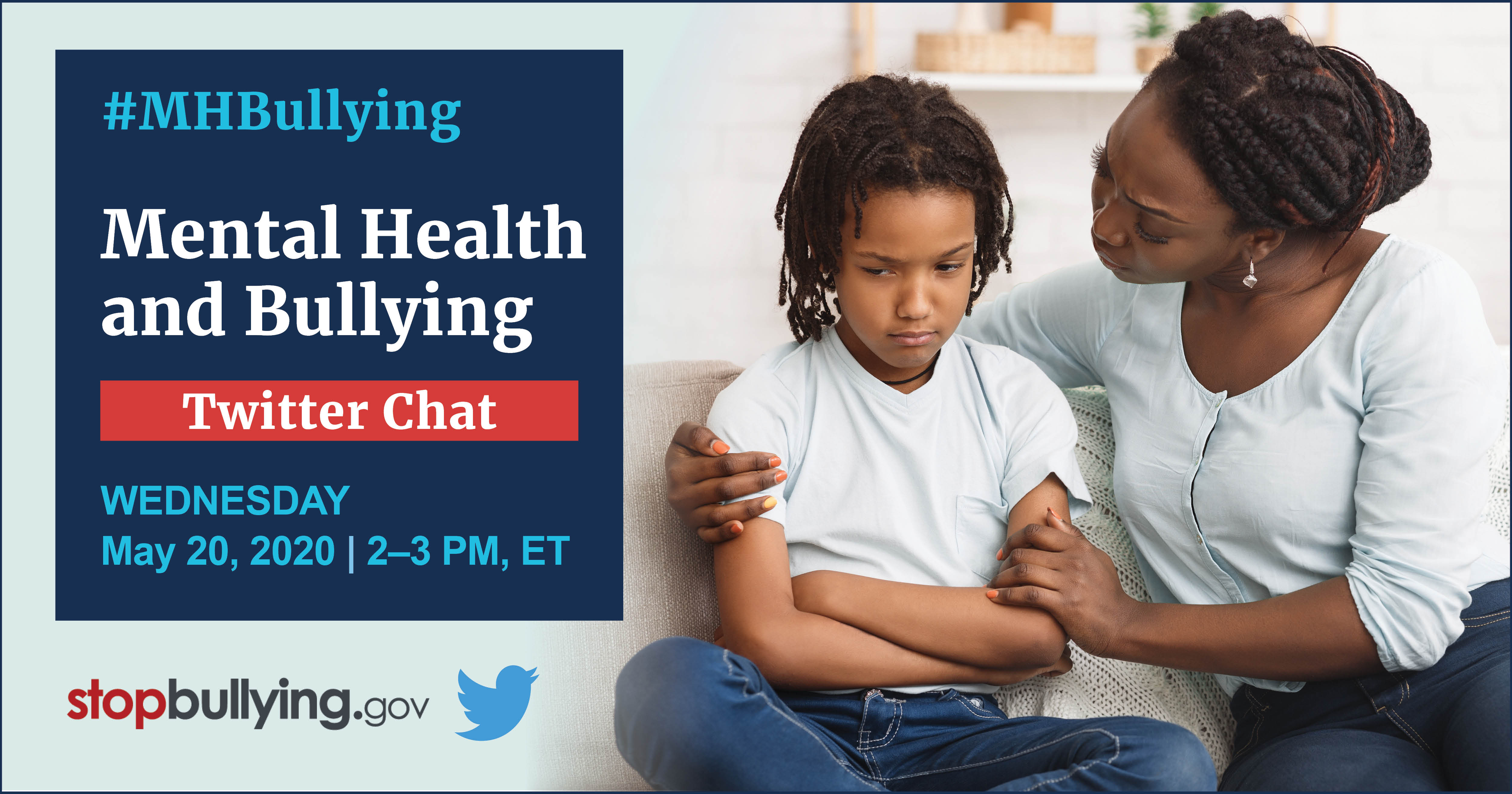
Join the Twitter Chat on Mental Health and Bullying May 20 at 2 p.m. ET
In honor of Mental Health Awareness Month, StopBullying.gov invites you to join the Twitter Chat on Mental Health and Bullying May 20 at 2 p.m. EST with our partners the American Public Health Association, ACEs Connection, and the National Federation for Children’s Mental Health.
Bullying negatively affects the mental health of all those involved: kids who have been bullied; kids who bully others; and kids who witness bullying. Together, we will explore:
- the intersection between mental health and bullying
- how to recognize mental health issues
- how to recognize the effects of bullying
- how to help children and youth who have experienced bullying
- how to prevent bullying
- resources and treatment options for children’s mental health
StopBullying.gov has resources for parents and caregivers on cyberbullying and bullying. Learn about the importance of establishing rules for digital use and behavior; tips to help your children deal with “haters”; and videos you can watch with younger children to teach them about how to handle bullying.
Support Your Child’s Mental Health
Families may have higher levels of stress and anxiety due to COVID-19. Parents and caregivers play a critical role in reassuring their children. Conveying calmness and confidence can help support children. Each individual responds to stress differently.
The Centers for Disease Control and Prevention (CDC) provides information about possible behavior changes to watch for in children and ways to support them. Common changes include:
- Excessive crying or irritation in younger children
- Returning to behaviors they have outgrown (for example, toileting accidents or bedwetting)
- Excessive worry or sadness
- Unhealthy eating or sleeping habits
- Irritability and “acting out” behaviors in teens
- Poor school performance or avoiding school
- Difficulty with attention and concentration
- Avoidance of activities enjoyed in the past
- Unexplained headaches or body pain
- Use of alcohol, tobacco, or other drugs
You can support children during this time by:
- Talk with your child or teen about the COVID-19 outbreak.
- Answer questions and share facts about COVID-19 in a way that your child or teen can understand.
- Reassure your child or teen that they are safe. Let them know it is ok if they feel upset. Share with them how you deal with your own stress so that they can learn how to cope from you.
- Limit your family's exposure to news coverage of the event, including social media. Children may misinterpret what they hear and can be frightened about something they do not understand.
- Try to keep up with regular routines. If schools are closed, create a schedule for learning activities and relaxing or fun activities.
- Be a role model. Take breaks, get plenty of sleep, exercise, and eat well. Connect with your friends and family members.
Some resources that may help you or someone you know support children during this time are:

